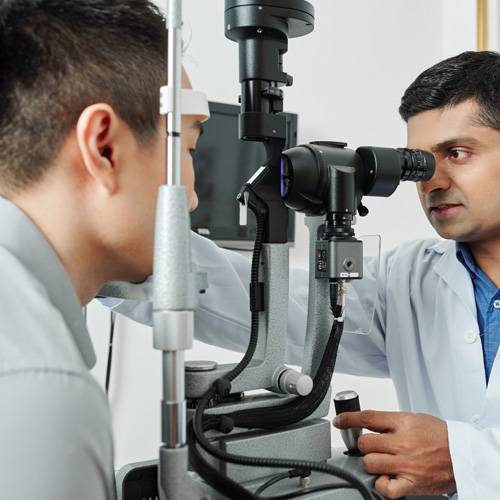The Department of Ophthalmology at the Citizens Specialty Hospital delivers advanced screening, diagnosis, and treatment facilities for patients suffering from various congenital and acquired eye diseases. The department is equipped with the latest treatment facilities for performing complex retina and cornea surgeries. The team is headed by a doctor with extensive experience monitoring and managing vision-threatening ocular disorders, such as glaucoma, retinal detachment, macular degeneration, and diabetic retinopathy. The patient should consult the best eye doctor if they experience sudden loss of central and peripheral vision. Our department has facilities like an automatic refractometer, a non-contact tonometer, a scan with a keratometer, and a slit lamp. Our doctors have vast experience of performing surgery for cataract eye disease using both the phacoemulsification technique and small incision cataract surgery, as well as Lasik surgery for refractive errors. We offer laser treatment for suitable eye diseases in our outpatient department.
Doctors & Trained Staff
Term Of Specialists
Patients From More Than 5 Countries
OT Departments
Our Blogs will keep you updated with the latest news,
campaigns, health and wellness updates you should know.




